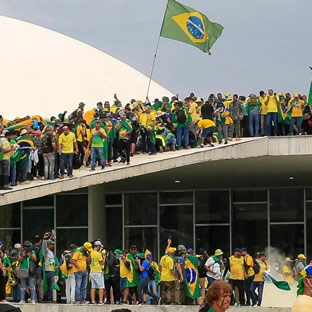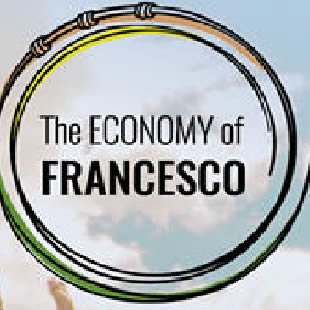The growing ecological awareness invites us to broaden the horizons of the four principles of Catholic Social Teaching (CST): human dignity, solidarity, subsidiarity, and the common good[1]. The first principle affirms that the human being is an image of God (“imago Dei”) and has a very special dignity which, however, does not imply separation, but rather collaboration and service. Being capable for God (“capax Dei”) and, at the same time, brother of all creatures, the human being must serve them in the logic of gift, thus imitating the kenosis of Christ. Therefore, the awareness of his human dignity must not separate him from the rest of creation, but rather reinforce his responsibility towards all creatures. We are all brothers and sisters of the same heavenly God and part of a single project of love. On the other hand, the respect for creation does not mean that it is static and untouchable, as some neo-pagan or pantheistic movements claim, sacralizing it as “an untouchable taboo” (CV 48). In the name of an idea inspired by egocentrism and biocentrism it is being proposed that the ontological and axiological difference between men and other living beings be eliminated, since the biosphere is considered…
O final de semana de 07 e 08 de janeiro passado ficou marcado no Brasil como um dos mais tristes para a nossa ainda jovem democracia (1889). Foram vandalizados na cidade-capital Brasília os prédios dos três poderes constituídos. Não bastasse o ataque físico e simbólico a locais tão importantes à vida política do país, o dano histórico e artístico agrava ainda mais a situação, uma vez que o patrimônio pictórico, documental e artístico ali presente foi praticamente todo destruído. Verdadeiros sinais de barbárie provocados por um grupo revoltoso que parece ter perdido sinais básicos de humanidade e mínimos de civilização. Homens e mulheres irracionalizados… Prefiro utilizar o termo assim, irracionalizados, em forma verbal flexionada em particípio passivo, pois tal situação é a ponta de um processo de formação e destruição de sentido de bem comum e vida social iniciado e fomentado por elementos econômicos e políticos atuantes já de algum tempo, não somente em âmbito nacional, mas também mundial. Enfim, massa de manobra a serviço de oligarquias políticas, agrárias e mercadológicas a quem não é interessante a constante e salutar ruptura do status quo constantemente promovida pelo movimento intrínseco aos regimes democráticos. Como bem enfatizou o atual chefe do executivo…
Two recent crises have raised the question as to the legitimate use of coercive force: the Covid-19 pandemic and the Russian invasion of Ukraine. In the first case the coercive force mainly took the form of legal restrictions on various human activities such as work and travel; in the second case, coercive force is being exercised primarily in the form of sanctions and financial support for Ukraine (which makes possible the other kind of coercive force Ukraine is using to expel the invader). In both cases there has been much debate about the ethics of such measures. The purpose of this post is to consider briefly the ethics of the use of coercive force in responding to the ecological and social crisis depicted in Laudato sì. In Chapter 5 of that document there are various discrete but firm references to the need for such force (for example, §§ 167,175,181). This need arises out of the simple fact that when some parties attempt to respond to the crisis by introducing change other parties tend to obstruct this process. It is not realistic to imagine that all parties will freely cooperate in effecting the necessary change. But is it ethically legitimate to…
Pope Francis has invited everyone to build a fraternal and inclusive economy[i], oriented to the common good and «attentive above all to the poor and excluded»[ii]. Our “sister mother Earth” «is among the most abandoned and maltreated of our poor»[iii]; therefore, this economy must be ecocentric. The Economy of Francesco To promote this economy, the Pope has wanted to organize in Assisi an international meeting of young economists (under 35 years of age), entitled Economy of Francesco, «to promote together, through a common “covenant”, a process of global change» (Ec-Fco) towards a new economic system that must be more inclusive and more attentive to the person and the environment. We need to set in motion processes to demand a change in «life-style, models of production and consumption, and established structures of power which today govern societies”[iv]. In calling for this meeting, the Pope showed his confidence in young people “to give a soul to the economy of tomorrow» (Ec-Fco), since «the present world system is certainly unsustainable»[v]. Accepting the papal invitation, more than 3,000 young economists from 120 countries signed up. The meeting had been scheduled to be held on March 26-28, 2020, in Assisi, a city «which has for…
Questa situazione di pandemia è diventata ormai una realtà concreta per tutti noi, che ci ritroviamo fragili e talvolta disorientati. In questi giorni, l’uomo ha più che mai bisogno dei valori fondanti della nostra religione: fedeltà a Dio, amore per i fratelli, altruismo, impegno per il bene comune, solidarietà con i più bisognosi, misericordia per tutti. Il virus ci ha colti alla sprovvista, ci ha confinati all’interno delle nostre case, ma ci ha fatto anche comprendere, anzi direi toccare con mano, che siamo tutti parte dell’unica famiglia umana. Questo messaggio conserva in pieno la sua validità non soltanto per i credenti, bensì per tutti gli uomini di buona volontà. Oggi siamo tutti chiamati a remare insieme, a confortarci e a sostenerci vicendevolmente. Anche il mondo sapienziale biblico, rappresentato dal libro di Giobbe, si interrogava sul significato della sofferenza dell’uomo chiamato Giobbe. Tutti noi ci sentiamo un po’ come Giobbe, soprattutto in questo tempo di pandemia. Il libro di Giobbe è una riflessione sul mistero della sofferenza che colpisce l’innocente. Ivi la risposta degli amici di Giobbe, che vorrebbero consolarlo spingendolo a riconoscere una colpa in realtà inesistente, non regge. Giobbe non ottiene spiegazione alcuna sul mistero del dolore, sul perché…





